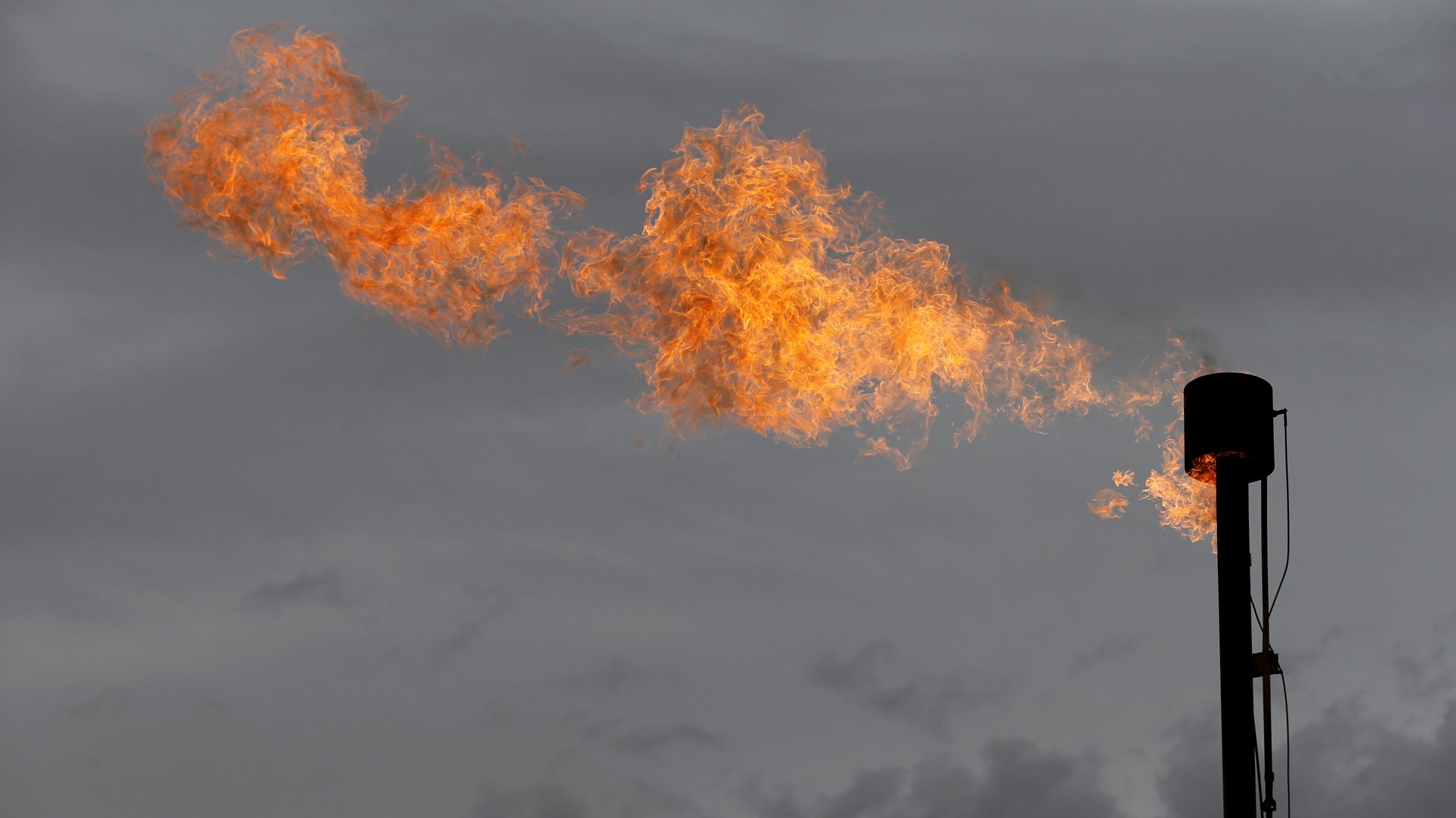American oil and gas companies are asleep at the wheel on methane emissions
In the global race to eliminate the world’s greenhouse gas footprint, some sources of emissions are easier to fix than others. One of the lowest-hanging fruits should be methane emissions from the oil and gas industry, which occur at every stage of production and distribution either through leaks or intentional flaring. Yet US oil and gas companies—the world’s largest producers of both products—have demonstrated once again that they’re not interested in fixing the problem.


In the global race to eliminate the world’s greenhouse gas footprint, some sources of emissions are easier to fix than others. One of the lowest-hanging fruits should be methane emissions from the oil and gas industry, which occur at every stage of production and distribution either through leaks or intentional flaring. Yet US oil and gas companies—the world’s largest producers of both products—have demonstrated once again that they’re not interested in fixing the problem.
On Monday, 62 oil and gas companies representing 30% of global oil and gas operations joined a new voluntary agreement to report and reduce methane emissions, organized by the Environmental Defense Fund, the UN Environment Programme, the European Commission, and the Climate & Clean Coalition. Not a single one was American.
Globally, methane emissions from oil and gas production amounted to about 82 megatons in 2019. That’s much less, by volume, than the industry’s multi-gigaton carbon dioxide footprint (not to mention emissions from actually burning the stuff). But because methane is up to 36 times more powerful than CO2 at capturing heat, it is disproportionately potent. As a result, reducing the oil and gas methane footprint by 75% would shave nearly 10% off the planet’s total greenhouse gas footprint, according to the Environmental Defense Fund. That’s more than taking every vehicle in America off the road.
The solutions are neither complicated nor expensive: Plug leaks, replace faulty old compressors and other equipment, and stop venting so much of it during drilling. Because conserving methane also means producers are capturing more gas to sell, solutions largely pay for themselves: According to the International Energy Agency, oil and gas methane emissions could be halved at zero net cost, using existing technology.
“This is the most immediate and cost-effective thing anybody can do to slow the rate of warming, now,” said Mark Brownstein, EDF’s senior vice president of energy.
In other words, this is a no-brainer. Yet the industry has been slow to recognize this problem or take meaningful steps to curb, or even measure, its methane. And American companies have proved to be more recalcitrant than any.
The EDF agreement replaces a 2014 version that had only 10 companies, and requires participants to work toward a 45% reduction in the industry’s methane emissions by 2025, and a 60-75% reduction by 2030. It includes big names like BP, Total, and Shell, as well as smaller companies from Europe, Thailand, Algeria, the UAE, and elsewhere.
In a way, it’s no surprise that American oil and gas companies are choosing not to participate. They lobbied the Trump administration to roll back Obama-era methane regulations, which it did in August, and have been notoriously lax about even attempting to monitor emissions. But recently, that has come back to haunt them. Earlier this month French authorities scuttled a proposed $7 billion deal to import liquified natural gas from Texas, specifically citing concerns about the lack of methane regulation in the US. That’s a potentially huge problem, since the global energy system is increasingly dependent on gas. Whatever reasons there may be to ignore methane, they aren’t worth being shut out of the global gas market, Brownstein said.
“You’re seeing the marketplace begin to react, and I would expect US producers would want to provide better data if they think they’re being unfairly treated,” he said. “Other companies are beginning to understand that having the data is what enables them to take control of the issue, and candidly, I think there are a number of companies who signed up [to the agreement] to get a head start on what’s going to be required of them down the line.”
Whether companies like it or not, methane regulation is coming. The European Commission recently adopted a methane strategy that explicitly borrows from the EDF-led agreement, and president-elect Joe Biden has promised to make restoring and strengthening methane rules a Day One priority. And if Amazon founder Jeff Bezos has his way, in just a couple of years it will be impossible for any company to hide its methane footprint. Last week, Bezos’s Earth Fund handed EDF a $100 million grant that it plans to use to launch a satellite that will measure and report global methane emissions with pinpoint accuracy (one of several major tech-focused grants the Fund announced).
“When the satellite comes online, that will make this all publicly available anyway,” Brownstein said. “So you might as well get started.”